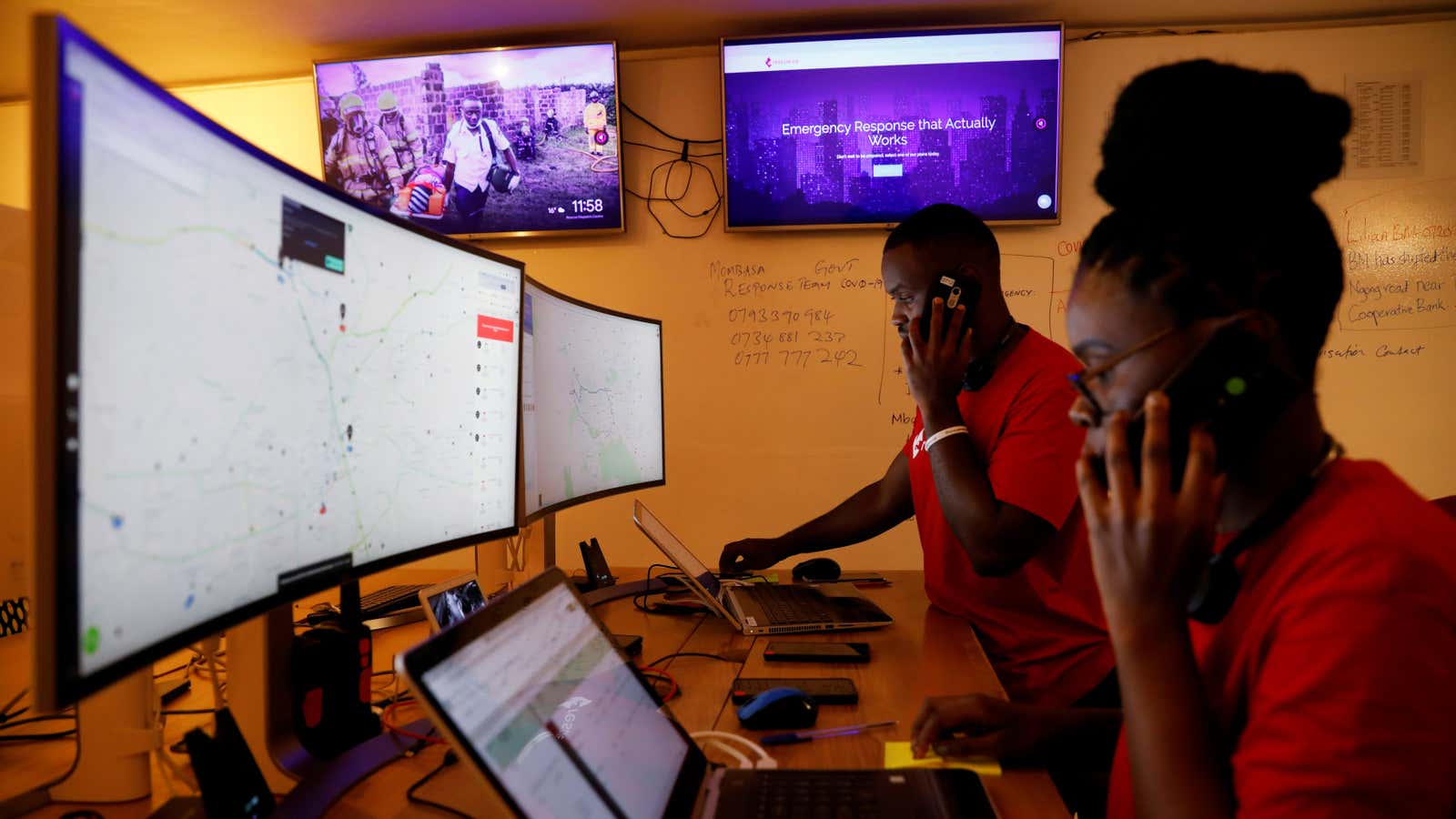The Covid-19 pandemic presents opportunities for the economic transformation of Africa through innovation, digitalization, and regional collaboration, but countries need policies to enable this, a new think-tank report says.
The pandemic could make businesses in Africa adopt digital-first operating models and make the continent’s manufacturing sector resume focus on innovation, local production, and self-reliance, says the report by the Accra-based African Center for Economic Transformation (ACET), an economic policy institute.
“These three areas we’ve identified are binding constraints that if tackled together and effectively across boarders could create a real opportunity for transforming the economy to generate the employment and income we desperately need and also to enable us to compete globally,” Mavis Owusu-Gyamfi, the executive vice president of ACET, tells Quartz.
This latest report by the institute looks at the need for African countries to pursue greater economic integration to transform the continent, focusing on creating jobs for young people, fostering digital innovation, and managing climate risks. ACET conducts research and analysis, advises policymakers, conducts advocacy, outreach, and convening with the aim of enhancing the ability of African governments and private sector to transform economies.
Innovation is increasing in Africa
Digitalization, innovation, and regional collaboration trends are increasing in the continent, and they could have the lasting impact of changing people’s mentality to using online and mobile banking tools, the report says.
Already, it says, many governments have started speeding up digitization. For example, several governments and tech companies have made internet more affordable, new training pathways have been created for teaching skills such as coding and graphic design, and South Africa’s government is using an interactive WhatsApp chatbot to answer Covid-19 questions. On an organizational level, the African Union launched a Covid-19 pass tool to simplify passport verification of public health documentation for travelers.
Innovation policies and programs need to be connected
As the continent creates a plan to recover from the pandemic and increase resilience against future crises, people will have more expectations about government programs, which will increasingly rely on digital data to deliver programs and will provide data-driven communications, the report says.
A recent example is Togo’s Novissi, a digital cash transfer program that sends funds to citizens through mobile money. The government program, which was launched in 2020 to support informal workers whose livelihoods had been affected by the pandemic, signed up more than 1 million citizens in its first week paying out $4.3 million in that week alone.
The African Union has a digital transformation strategy to guide countries in developing comprehensive policy on new technologies, new business models, and new digital economies. This strategy is more important now than ever as the region moves to implementing the African Continental Free Trade Area (AfCFTA) and needs to harness technology to facilitate intra-africa trade.
While Africa has many digital and innovation policies and programs to facilitate these, they need to be connected together “to grow into viable ecosystems”, the report says. Africa has an unexploited market of improving living standards, and this can be achieved by effecting innovation policy options through the partnership of governments, knowledge networks, and entrepreneurs, it adds.
Sign up to the Quartz Africa Weekly Brief here for news and analysis on African business, tech, and innovation in your inbox.
